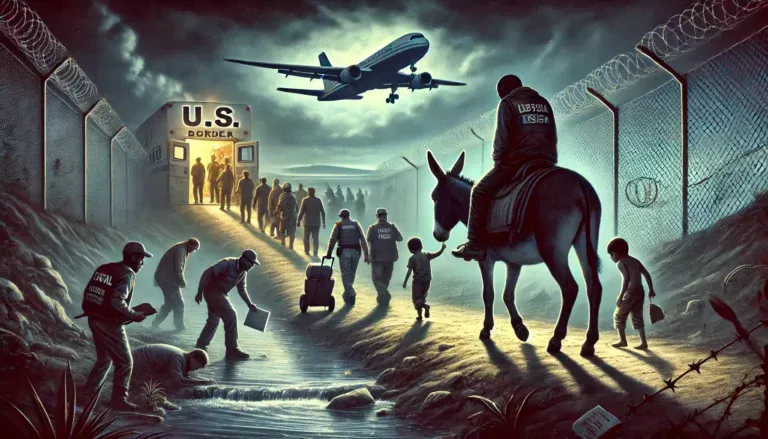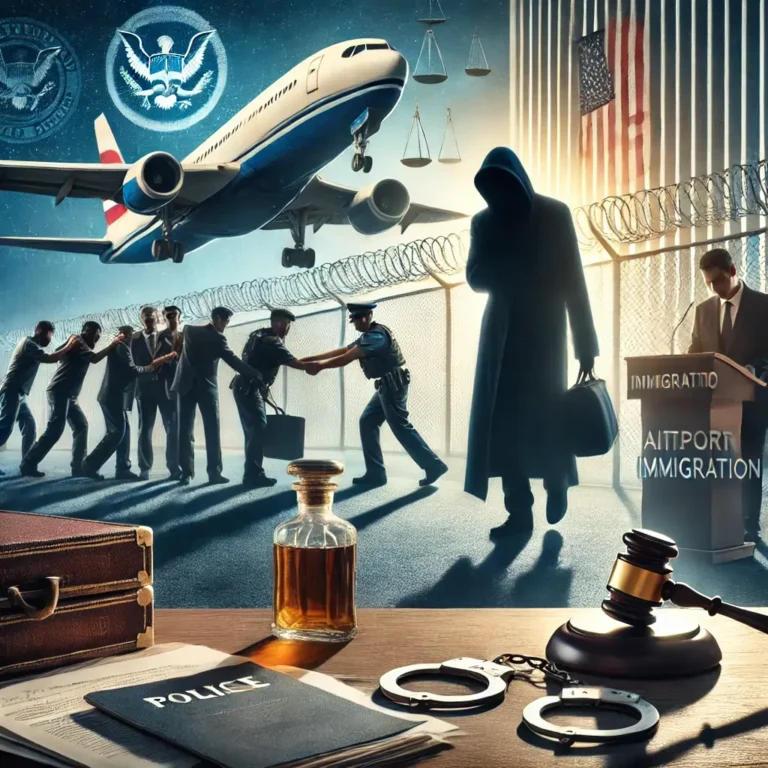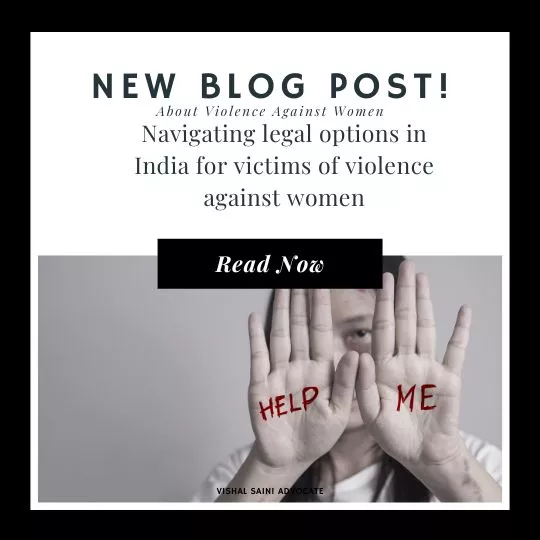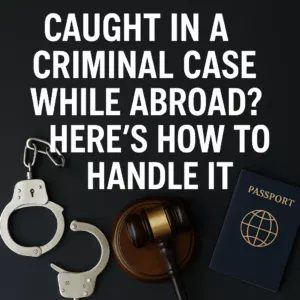In this article we have discussed the importance of Legal Aid For Victims Of Human Trafficking. As human trafficking is a grave violation of human rights, affecting millions worldwide. In India, it manifests in various forms, including forced labor, sex trafficking, and exploitation of children. The Indian government, in collaboration with numerous NGOs and civil society organizations, has made significant strides in combating this menace. Central to this fight is the provision of legal aid to victims, offering them not just a path to justice but also a chance at reclaiming their lives. This article aims to shed light on the legal support available to victims of human trafficking in India, emphasizing its importance and accessibility.
Understanding Human Trafficking in India
Human trafficking in India is a multifaceted issue. It thrives on poverty, lack of education, and the absence of employment opportunities, drawing vulnerable individuals into a cycle of exploitation. Recognizing the complexities of trafficking, Indian law encompasses a broad range of offenses, including physical and sexual exploitation, abduction, and forced labor.
Legal Framework Against Human Trafficking
India has a robust legal framework to combat human trafficking, with the Indian Penal Code (IPC), the Protection of Children from Sexual Offences (POCSO) Act, and the Immoral Traffic (Prevention) Act (ITPA) being at the forefront. The government has also ratified various international conventions and protocols to strengthen its legal arsenal against traffickers.
The Role of Legal Aid
Legal aid for victims of human trafficking is pivotal in ensuring justice and rehabilitation. It encompasses a wide range of services, from counseling and representation in court to assistance in obtaining compensation and rehabilitation benefits. The Indian government, through the National Legal Services Authority (NALSA), provides free legal services to victims, ensuring that justice is accessible to all, irrespective of their financial status.
Legal Aid For Victims Of Human Trafficking In India: A Beacon Of Hope
Victims of human trafficking or their families can access legal aid through various channels. Here’s a simplified guide:
Step 1: Reach Out for Help
Contact the nearest police station or call the national helpline numbers dedicated to victims of human trafficking. NGOs and civil society organizations also play a crucial role in providing immediate support and guidance.
Step 2: Legal Representation
Upon reporting the crime, victims are entitled to free legal representation under the Legal Services Authorities Act, 1987. Legal aid lawyers are trained to handle trafficking cases sensitively and efficiently, ensuring that the victim’s rights are protected throughout the legal process.
Step 3: Court Proceedings
The legal aid lawyer assists the victim through the court proceedings, from filing the case to the final judgment. They ensure that the victim’s testimony is recorded in a manner that minimizes trauma and that all necessary evidence is presented to the court.
Step 4: Compensation and Rehabilitation
Legal aid extends beyond the courtroom. Lawyers help victims access government schemes for compensation and rehabilitation, facilitating their journey towards healing and social reintegration.
The Human Touch in Legal Aid
Behind every trafficking case is a human story of resilience and the quest for justice. Legal aid lawyers are not just legal representatives; they are pillars of support for the victims, often becoming their confidants and advocates for their rights. Their empathy and dedication can significantly impact the victims’ healing process, offering them hope and a sense of belonging in their darkest times.
Conclusion: Lighting the Path to Recovery
The provision of legal aid to victims of human trafficking in India is a beacon of hope, illuminating the path to justice and recovery. It embodies the spirit of compassion and the unwavering belief in the right to dignity and freedom for every individual. As we move forward, it is imperative to strengthen these legal aid services, ensuring that they are more accessible and responsive to the needs of trafficking victims. Together, we can build a society that stands firm against exploitation, safeguarding the rights and freedoms of its most vulnerable members.
In the fight against human trafficking, legal aid is not just a service; it is a lifeline, offering victims a chance to reclaim their lives and dignity. By ensuring that this lifeline is strong, accessible, and compassionate, India can continue to make strides in its battle against trafficking, offering victims not just legal recourse but a chance at a new beginning.
FAQs on Legal Aid for Victims of Human Trafficking in India
- What is human trafficking?
- Human trafficking involves recruiting, transporting, transferring, harboring, or receiving people through force, fraud, or coercion for the purpose of exploitation.
- How is human trafficking defined under Indian law?
- Indian law treats human trafficking as a criminal offense under various legislations, including the Indian Penal Code (IPC), the Immoral Traffic (Prevention) Act (ITPA), and the Protection of Children from Sexual Offences (POCSO) Act.
- Who are the primary victims of human trafficking in India?
- Victims often include women and children, marginalized communities, and those from economically weaker sections of society.
- What types of exploitation do trafficking victims in India face?
- Exploitation types include forced labor, sex trafficking, child labor, and organ trafficking.
- What is legal aid?
- Legal aid involves providing free legal services to those who cannot afford legal representation and access to the court system.
- Who qualifies for legal aid in India?
- Victims of human trafficking, women, children, disabled individuals, and economically weaker sections are entitled to legal aid.
- How can victims of human trafficking access legal aid in India?
- Victims can access legal aid by contacting the National Legal Services Authority (NALSA) or state legal services authorities. They can also reach out to NGOs or helplines dedicated to trafficking victims.
- Is legal aid for trafficking victims free?
- Yes, legal aid provided to victims of human trafficking is free of charge under the Legal Services Authorities Act, 1987.
- What services do legal aid lawyers provide to trafficking victims?
- They offer counseling, legal representation in court, help in filing cases, and assistance in accessing compensation and rehabilitation schemes.
- Can victims of human trafficking receive compensation?
- Yes, victims are eligible for compensation under various government schemes and the orders of the court.
- What is the role of NGOs in providing legal aid to trafficking victims?
- NGOs play a crucial role by offering counseling, legal assistance, rehabilitation services, and raising awareness about the rights of trafficking victims.
- How does the Indian government support trafficking victims?
- Through legal frameworks, setting up anti-human trafficking units, offering rehabilitation and compensation schemes, and partnering with NGOs and international organizations.
- What should a victim do immediately after escaping trafficking?
- Contact the police, call national helplines for trafficking victims, or reach out to an NGO dedicated to helping trafficking victims.
- Are there special courts for trafficking cases in India?
- While there are no exclusive courts, fast-track courts and designated special courts handle POCSO and ITPA cases to expedite justice.
- What is the role of the judiciary in protecting trafficking victims?
- The judiciary ensures the enforcement of laws against trafficking, adjudicates cases, and orders compensation and rehabilitation measures for victims.
- Can a trafficking victim be penalized for crimes committed under coercion?
- Indian law provides protection for victims, ensuring they are treated as victims rather than criminals, especially for acts committed under coercion.
- How long does a legal process for a trafficking case typically take in India?
- The duration varies, but fast-track procedures and special courts aim to expedite the process.
- What rehabilitation services are available for trafficking victims?
- Services include psychological counseling, vocational training, education, and integration programs.
- How can the public help combat human trafficking?
- By staying informed, reporting suspected cases to authorities, supporting NGOs, and advocating for stronger protective measures and policies.
- What are the challenges in providing legal aid to trafficking victims?
- Challenges include the victims’ fear of retaliation, stigma, lack of awareness about their rights, and the complexity of legal procedures.
- How can a victim of trafficking prove their case in court?
- Through evidence such as testimonies, physical evidence, and, in some cases, forensic evidence, with the support of their legal aid lawyer.
- What is the importance of confidentiality in trafficking cases?
- Maintaining confidentiality is crucial to protect the victim’s identity and safety, and to encourage them to come forward.
- Can a non-Indian victim of trafficking get legal aid in India?
- Yes, foreign nationals who are victims of trafficking in India are entitled to legal aid and protection under Indian law.
- What is the role of the police in trafficking cases?
- The police are responsible for investigating trafficking cases, rescuing victims, and providing them with necessary support and protection.
- How can one volunteer or contribute to helping trafficking victims?
- By volunteering with NGOs, participating in awareness campaigns, and contributing to funds dedicated to helping trafficking victims.
- Are there any preventive measures against human trafficking?
- Preventive measures include education and awareness programs, community vigilance initiatives, and strict enforcement of trafficking laws.
- What legal measures can be taken against traffickers?
- Traffickers can face severe penalties, including imprisonment and fines, under the IPC, ITPA, and POCSO Act.
- How does the government ensure the safety of trafficking victims during the legal process?
- Through witness protection schemes, in-camera trials, and ensuring anonymity to protect victims from intimidation and harm.
- Can trafficking victims sue their traffickers for damages?
- Yes, victims can file civil suits against their traffickers for compensation and damages, in addition to criminal proceedings.
- What future steps are being taken to improve legal aid for trafficking victims?
- Steps include strengthening legal frameworks, enhancing the capacity of legal aid services, and fostering collaborations between the government, NGOs, and international organizations to provide comprehensive support to victims.
















